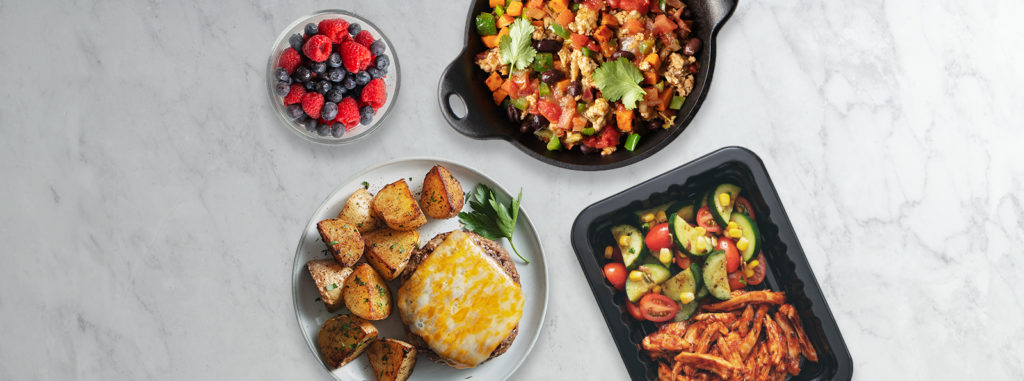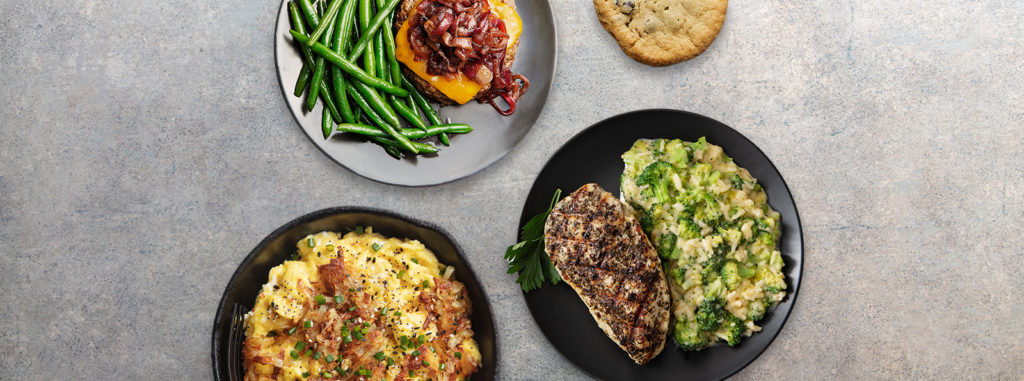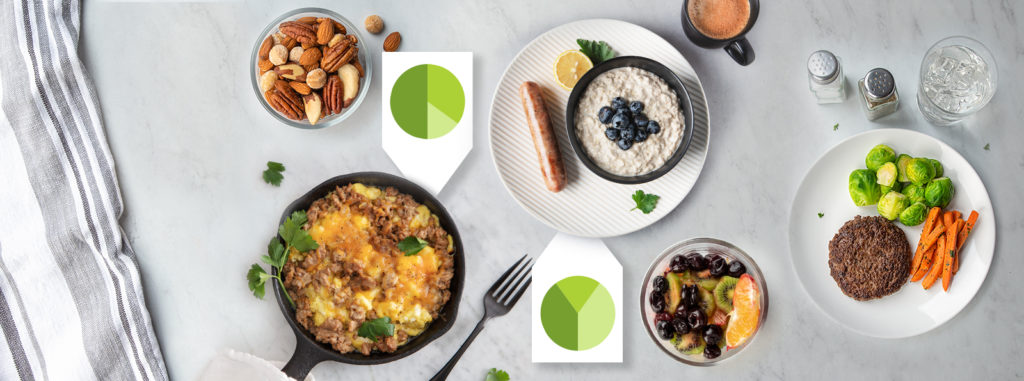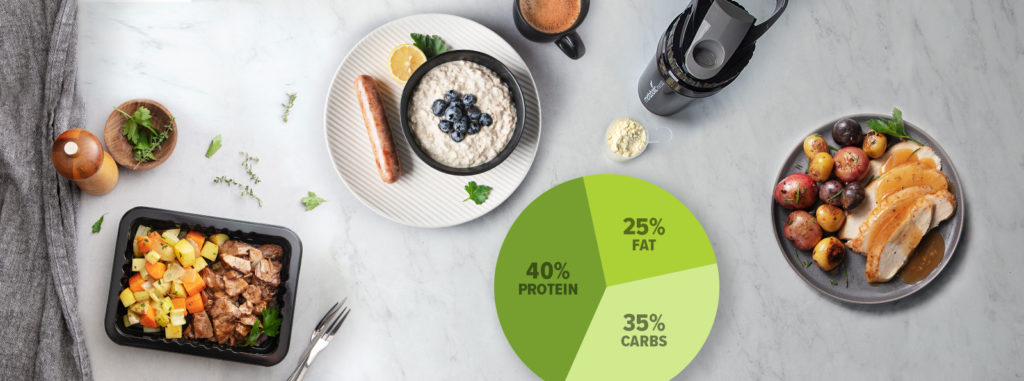ARTICLE AT A GLANCE
When I think of cheat meals, my first thought is of Dwayne ‘The Rock’ Johnson. He is known to share his weekly cheat meals on social media, often consisting of massive stacks of pancakes, an entire XXL pizza to himself, or a pyramid of mouth-watering brownies. His weekly nutrition regimen meticulously plans for these enormous calorie loads on Sundays, so as not to throw him off track overall.
It works for him and his goals, but do cheat meals work for everyone? There can be both challenges and benefits to cheat meals, and there are a few tips I recommend to help navigate incorporating “cheats” into your lifestyle.
Tip #1: Reframe your mindset.
Instead of thinking of “cheat meals” or “cheat days” as an all-bad de-rail of your diet, rather consider these meals as treats – an integral part of an overall healthy lifestyle. Good nutrition should be sustainable and include treat foods in moderation.
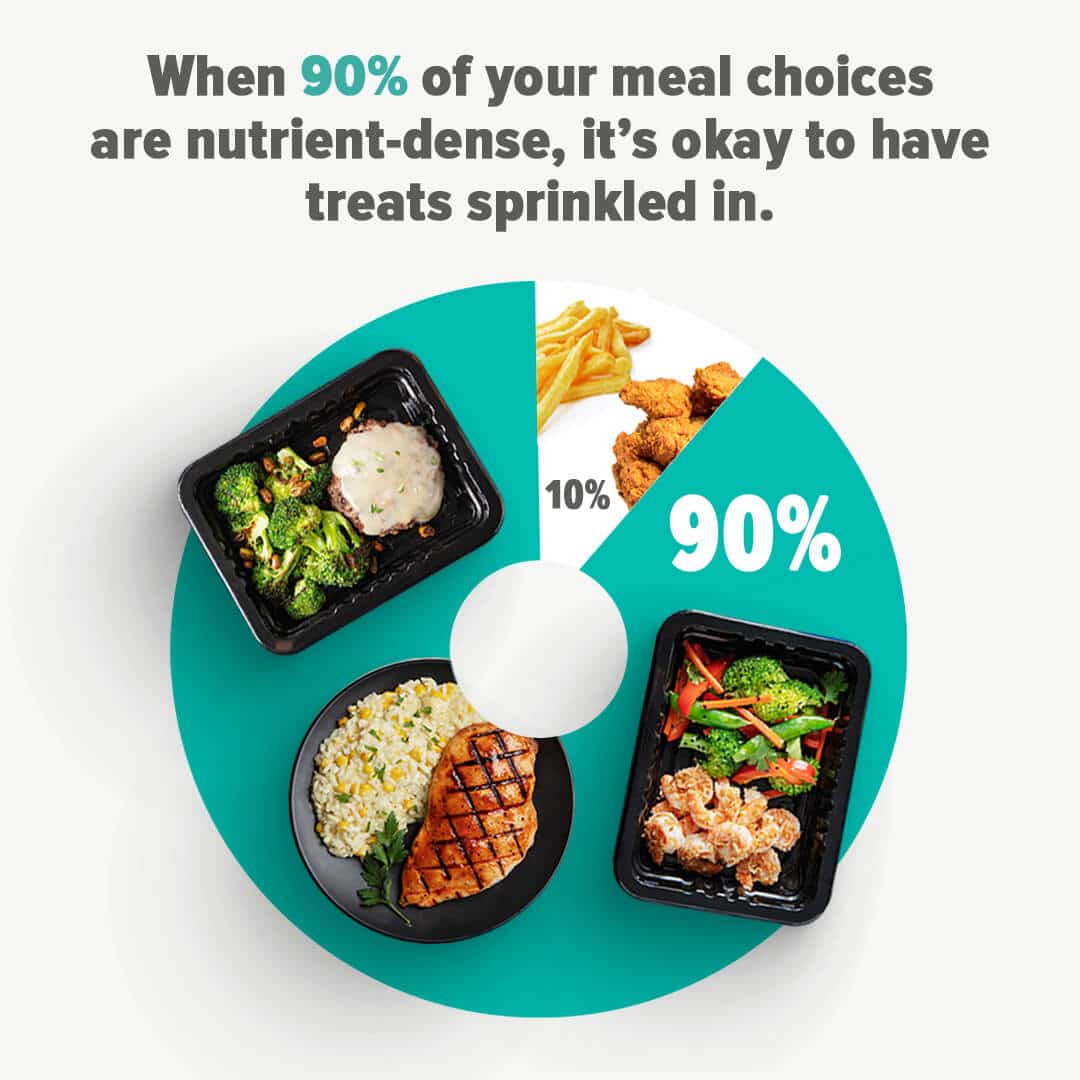
When 90% or so of your meal choices are nutrient-dense, high-quality foods, it’s okay to have treats sprinkled in. If you feel deprived and crave an entire “cheat day,” that’s a sign to re-assess your overall diet. Healthy lifestyles shouldn’t feel restrictive.
It’s important to find ways to eat healthy food that’s also enjoyable and keeps you full. The most important thing is the big picture: What are your most common habits and meal choices over a month? Three months? A year? Knowing treats can be sprinkled in occasionally can prevent an unhealthy restrict/binge cycle.
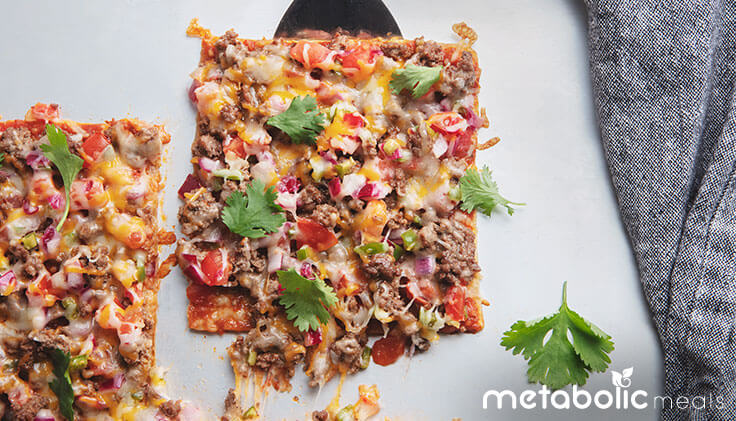
Gluten-free pizza from a prepared meal delivery company like Metabolic Meals is an example of a meal that feels indulgent while still being very macro-friendly in proper portions and plenty of protein (29g protein per slice!)
Healthy, chef-crafted meals, delivered fresh to your door.
It’s also important to know that treats every now and then won’t “ruin” your diet or goals. Let’s take pizza, for example. If you have a night where you eat five slices of pizza for dinner, you’ve consumed about 1,425 calories for that dinner. Let’s say you had a 300 calorie breakfast and a 700 calorie lunch. Let’s also say your maintenance calories are about 2,000 calories (what you need each day to maintain your weight is calculated based on your basal metabolic rate and your activity level).
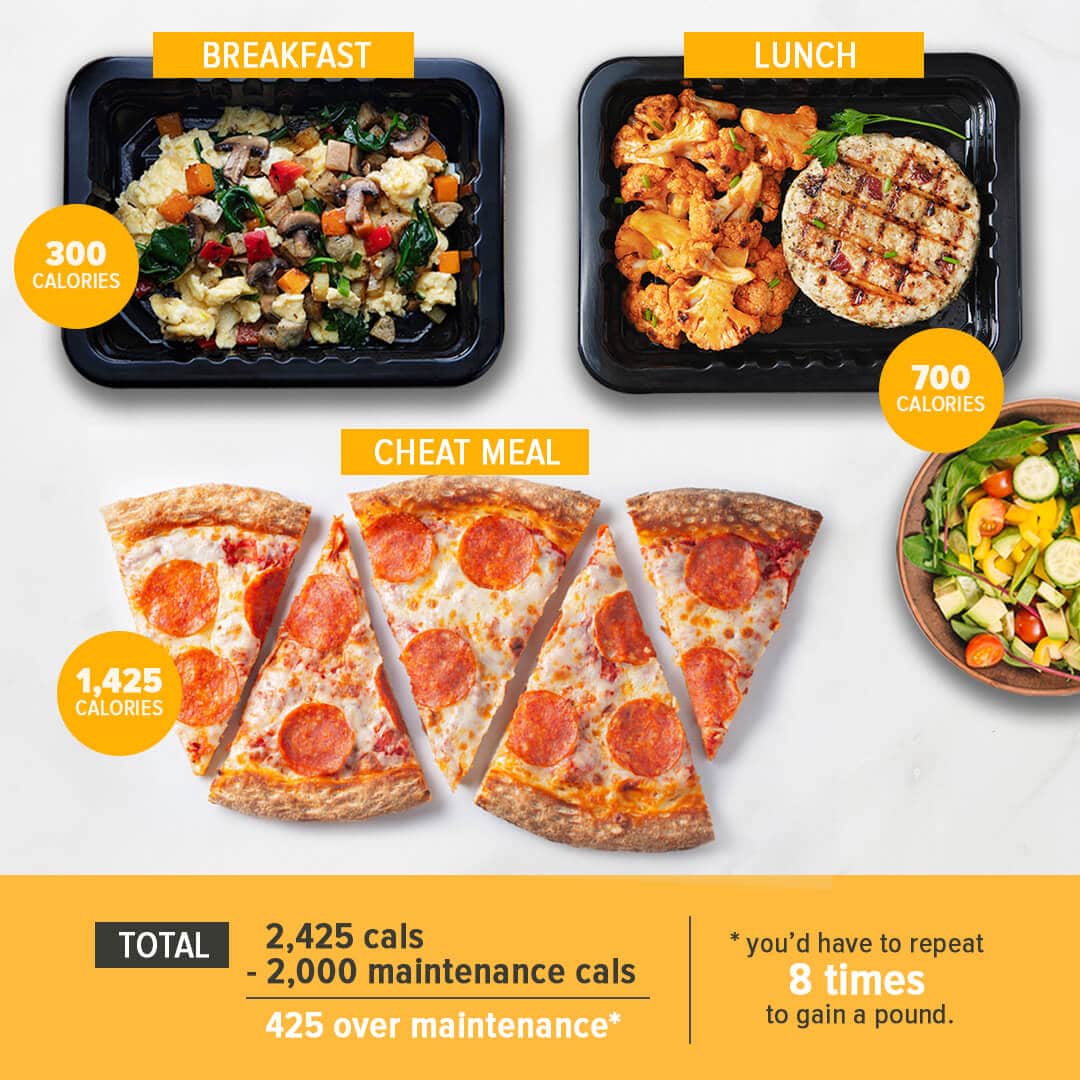 You might feel over-stuffed and guilty after your five slices of pizza. Your total calories for the day come in at 2,425 – or 425 over maintenance. There are 3,500 calories in one pound of weight gain. You would need to have a five-slices-of-pizza-night EIGHT times in order to gain a pound of weight! The lesson here is not to feel guilty or punish yourself for occasional treats.
You might feel over-stuffed and guilty after your five slices of pizza. Your total calories for the day come in at 2,425 – or 425 over maintenance. There are 3,500 calories in one pound of weight gain. You would need to have a five-slices-of-pizza-night EIGHT times in order to gain a pound of weight! The lesson here is not to feel guilty or punish yourself for occasional treats.
Tip #2: Preload.
If you know you’re going to have a cheat meal, you can plan ahead for it with a simple trick: Preload your stomach before you start eating your “junk food” of choice.
For instance, if you are going out with friends for tacos and margaritas (and tons of chips and guac), drink a big glass of water before you start your evening. This will send a fullness signal to your brain by the mechanical stretch of your stomach, and you will likely end up eating fewer calories overall than you would have if you started on an empty stomach.
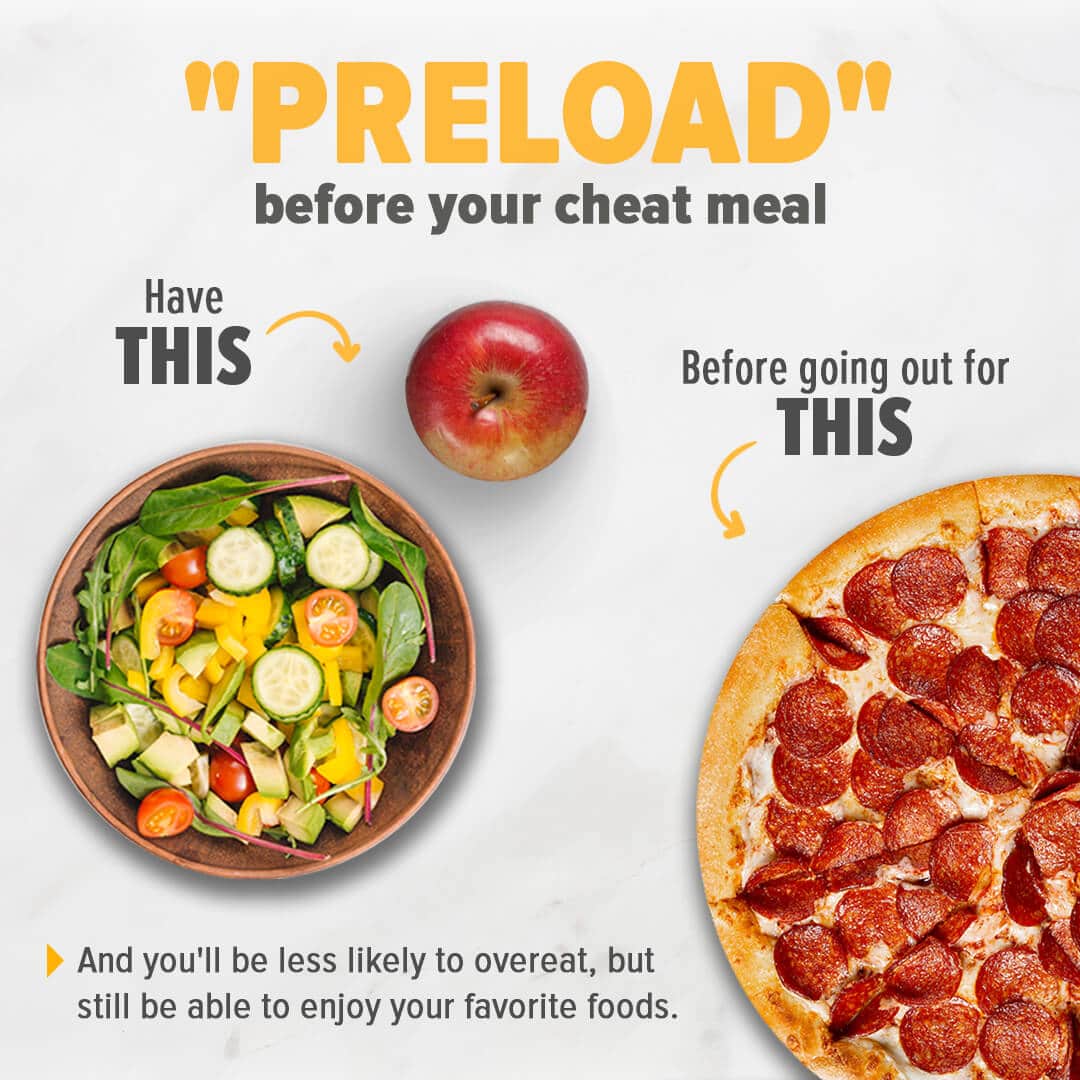
Another way to preload is to eat a high-volume plant-based food. This is a food that takes up space in your stomach. A good example is an apple or a simple salad, eaten before your main course or before you leave for dinner out. This way, you can still enjoy all the foods you planned to eat, but likely in smaller overall portions without feeling restricted.
Tip #3: Wait to weight.
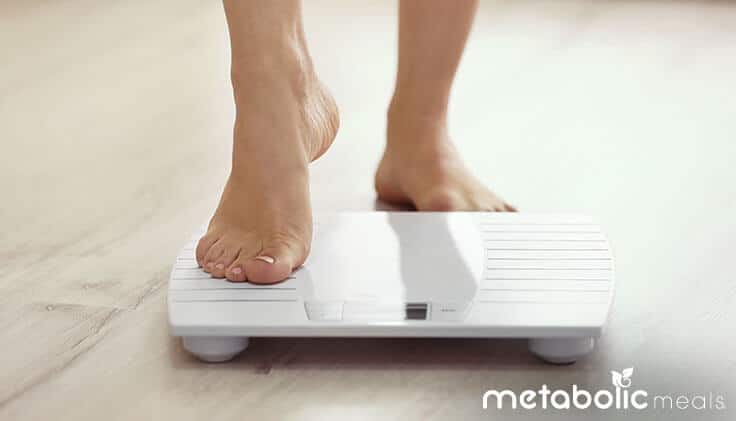
It can be tempting to step on the scale the morning after a cheat meal or a vacation full of cheat meals, to assess the damage. Try to avoid this habit!
Cheat meals are typically rich in carbohydrates and sodium – two things that notoriously hold on to water weight. If you weigh yourself the morning after the pizza night or the tacos/chips/margarita night, the scale might show a 3-5-pound weight gain … cue the panic and subsequent calorie restriction or over-exercising. But, this number is inaccurate. It’s mostly reflective of water weight gain that will dissipate after a few days of being back to your typical eating patterns.
The best thing you can do after a cheat meal or cheat day is to continue to eat like you normally would, and weigh yourself a few days later if you typically use a scale to monitor yourself. By then, the number should much more accurately reflect your true weight.
Overall, remember that a healthy lifestyle means enjoying life. Going on a trip? Indulge in the local food. Going to a birthday party? Have the cake. Feed your body most of the time with a delicious, high-quality, nutrient-dense variety of foods, and mix treats in from time to time. Focus on the big picture, and be kind with yourself as you work towards your most healthy, balanced self.
Dr. Aloiya Earl is a Sports Medicine Physician. She received her Bachelors of Science in Exercise Science from the University of South Carolina, her M.D. from The University of Toledo College of Medicine, and she completed her residency training at The Ohio State University. After residency, she completed a fellowship in sports medicine at the University of Alabama. She is a member of the American Medical Society for Sports Medicine.


